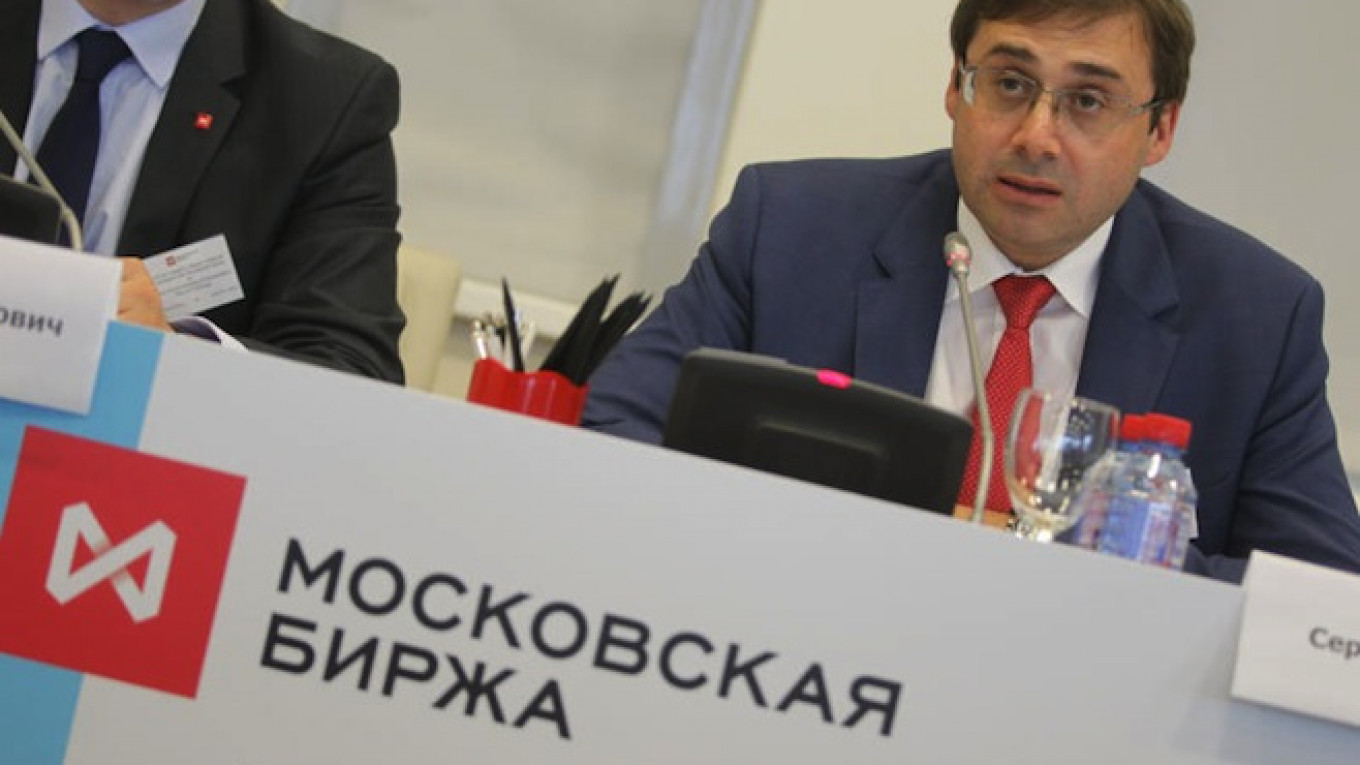Foreign investors bought about 60 percent of a secondary share issue in the Moscow Exchange, showing the appetite for Russian shares from abroad, an official from the Russian Central Bank said Wednesday.
Sergei Shvetsov, the Central Bank's first deputy chairman, said about 40 percent of the demand came from Russia, 15 percent from Asian investors, 33 percent from European investors and 10 percent from the United States.
"We weren't sure that there would be such high demand," he told journalists at a banking conference in St. Petersburg. "For us it was a positive surprise, which shows that there is interest in Russian shares."
Earlier, the Russian Central Bank said it had sold 267.3 million shares in the exchange at a price of 60 rubles ($1.75) per share. The published terms show that the offering was made at an 8 percent discount to Tuesday's closing price, raising $468 million.
The bank said the issue was several times oversubscribed, with bids from 96 investors satisfied.
Shvetsov said the biggest Russian investor was the Russian Direct Investment Fund, a state-owned private equity fund that acquired 6.3 percent of the exchange in 2012.
The Fund said in a statement that it was investing in the latest share issue as part of a consortium including international institutional investors from China, Singapore, the UAE, Qatar, the United States and Germany.
It did not provide details on the size of the investment.
Shvetsov said that sovereign funds, including the Russian Direct Investment Fund, had acquired 20 percent of the latest share offer.
Banking sources told Reuters on Tuesday that the Central Bank was selling an 11.75 percent stake representing half its shareholding in the exchange.
The 60 ruble offer price was at the bottom of an indicative price range of 60-65.05 rubles, according to offer terms shown to Reuters by a banking source.
On Tuesday the Central Bank said it intended to sell all its shares in the exchange as part of a government plan approved last year.
The plan is aimed at ending a conflict of interest, as the Central Bank became responsible for overall financial market regulation last year.
Privatization is also part of a drive to improve financial market infrastructure as Russia seeks to turn Moscow into an international financial center.
The Moscow Exchange, Russia's largest platform for trading shares, bonds, currency and derivatives, was formed in 2011 following the merger of Moscow's two largest stock exchanges, MICEX and the RTS.
See also:
A Message from The Moscow Times:
Dear readers,
We are facing unprecedented challenges. Russia's Prosecutor General's Office has designated The Moscow Times as an "undesirable" organization, criminalizing our work and putting our staff at risk of prosecution. This follows our earlier unjust labeling as a "foreign agent."
These actions are direct attempts to silence independent journalism in Russia. The authorities claim our work "discredits the decisions of the Russian leadership." We see things differently: we strive to provide accurate, unbiased reporting on Russia.
We, the journalists of The Moscow Times, refuse to be silenced. But to continue our work, we need your help.
Your support, no matter how small, makes a world of difference. If you can, please support us monthly starting from just $2. It's quick to set up, and every contribution makes a significant impact.
By supporting The Moscow Times, you're defending open, independent journalism in the face of repression. Thank you for standing with us.
Remind me later.






